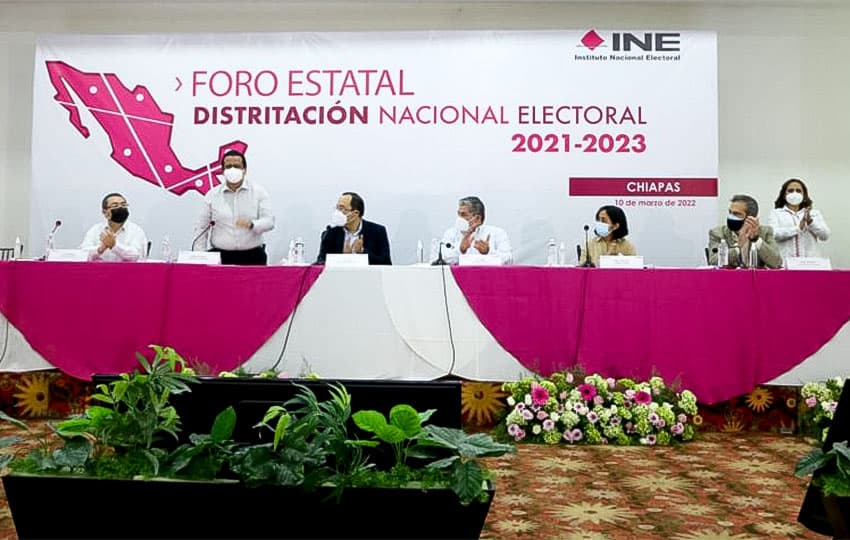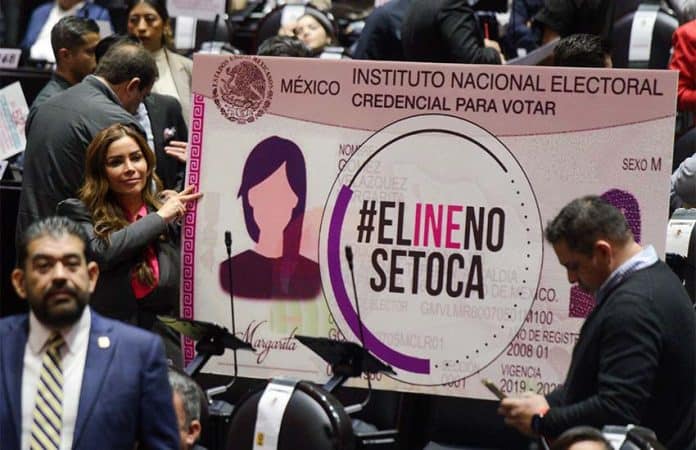Human Rights Watch has called on Mexican lawmakers to vote against President López Obrador’s proposed reforms to the electoral system, warning that the changes “would put free, fair elections at risk.”
In a strongly worded statement, Human Rights Watch argued that AMLO’s plan to overhaul and centralize the National Electoral Institute (INE) would eliminate crucial safeguards and seriously undermine electoral authorities’ independence.
“President López Obrador’s proposed changes to the electoral system would make it much easier for whichever party holds power to co-opt the country’s electoral institutions to stay in power,” said Tyler Mattiace, a Mexico researcher at Human Rights Watch.
AMLO’s reform bill proposes a range of measures, including eliminating all state electoral institutes and transferring their powers of dispute resolution to a centralized INE and Federal Electoral Tribunal.
México: La reforma electoral propuesta por el presidente @lopezobrador_ pondría en riesgo las elecciones libres e imparciales.
Los @Mx_Diputados deberían rechazar las modificaciones propuestas a la Constitución.
El último análisis de @hrw_espanol:https://t.co/AWl0B7igb6
— Tyler Mattiace (@TMattiaceHRW) December 5, 2022
Mattiace tweeted a call to Mexico’s Congress not to support the proposed constitutional reform, scheduled for a vote by Dec. 15.
INE members, who currently serve staggered, nine-year terms, would instead be appointed every six years, in a single process that would include a citizens’ vote.
While AMLO insists that the reforms will reduce bias and inefficiency in the INE, Human Rights Watch warned that they would expose the authority to politicization and roll back advances that helped bring an end to Mexico’s 71 years of single-party rule by the Institutional Revolutionary Party (PRI) in 2000.
“Given Mexico’s long history of one-party rule maintained through questionable elections, it is extremely problematic that legislators would consider a highly regressive proposal that would weaken the independence of the elections authority,” Mattiace said.
Human Rights Watch also criticized the bill’s proposal to end the INE’s mandate to administer the electoral rolls.
“The possibility that the electoral registry could be transferred to the control of the government could contravene Mexican law and international standards for protecting personal data,” the statement warned.
Congress is expected to vote on AMLO’s proposal before the current legislative session ends on December 15.
The president originally attempted to implement the reforms through a constitutional amendment that would require a two-thirds majority, before switching to a “Plan B” that would allow his party to push through elements of the bill as secondary legislation with only a simple majority.
Opposition parties, including the Institutional Revolutionary Party (PRI), have stated that they will oppose the move.

The reforms have sparked fierce debate in Mexico, with thousands taking to the streets both for and against the bill. Public polls have had very mixed results, with some suggesting approval of the current INE and others showing support for key elements of the reforms.
Human Rights Watch is not the first international observer to express concerns. On November 28, the Washington Post newspaper published an editorial describing the reforms as an “antidemocratic maneuver” and claiming that AMLO was motivated by bitterness over his narrow defeat by Felipe Calderón in Mexico’s 2006 presidential election, in which the INE rejected his claims of fraud.
Mexico News Daily
